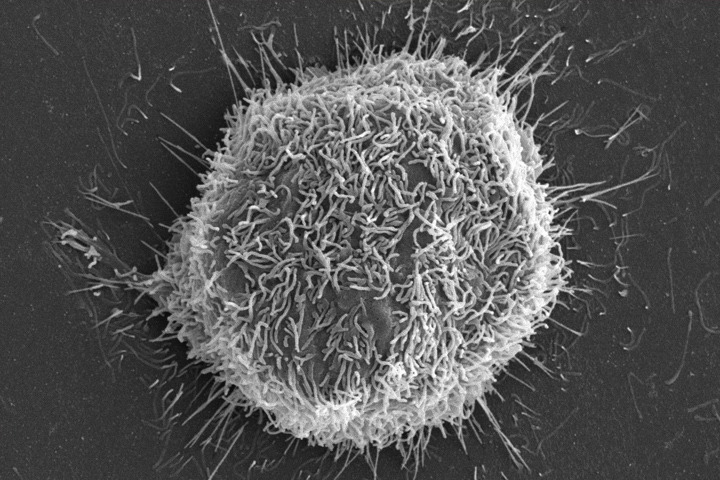Immunotherapy for Pancreatic Neuroendocrine Tumors

Can immunotherapy make hormone-based treatment for pancreatic neuroendocrine tumors more effective?
Pancreatic neuroendocrine tumors (P-NETs) make up less than 5 percent of all pancreatic cancers. Unlike pancreatic ductal adenocarcinomas (PDAs), P-NETs originate in the hormone-making islet cells of the pancreas, respond to different treatments, and have an overall survival rate higher than PDAs.
In a clinical trial, researchers are evaluating the effectiveness of adding immunotherapy to the standard hormone therapy given for advanced P-NETs.
Treatments Under Trial
Lanreotide is a long-acting synthetic version of the growth hormone somatostatin. It is used to treat locally advanced or metastatic P-NETs, to limit the progression of the cancer. Pembrolizumab (Keytruda) is a monoclonal antibody that is part of a class called “checkpoint” drugs. Checkpoint drugs help restore the immune functions of cells, allowing the body to recognize the cancer cells as foreign and kill them.
A Two-Stage Trial
To join the trial patients must have had prior treatment with somatostatin analogue. All participants will receive the combination being studied. The trial is in two stages. It starts with a safety run-in of pembrolizumab and lanreotide with a small group of participants, to make sure they do not have a bad reaction to the combination. Once safety is determined a larger group will be given the chemotherapy combination.
We encourage you to consult your physicians for clinical trials that may be right for you. The website ClinicalTrials.gov provides more details about this trial as well as many others. You can visit the Let’s Win Trial Finder for a listing of all active pancreatic cancer clinical trials.
This trial has been completed.





